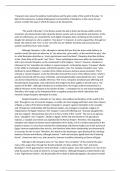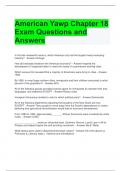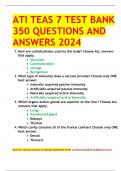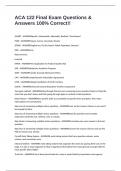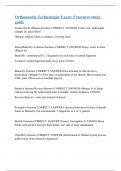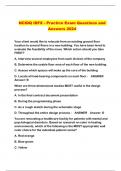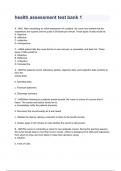Essay
'Anthony and Cleopatra' A* Essay: The Theme of Politics
- Module
- A2 Unit 4 - Shakespeare
- Institution
- WJEC
The essay question answered in the document is “Cleopatra rises above the political machinations and the grim reality of the world of the play.” In light of this statement, evaluate Shakespeare’s presentation of Cleopatra, in the course of your answer consider the ways in which the plays can ...
[Show more]
